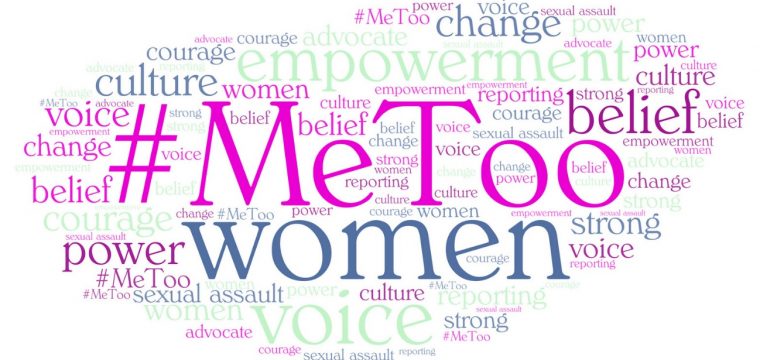Even in the midst of the #MeToo movement, college campuses across the country continue to see an increase in the number of sexual assaults, with a surge happening from the start of the fall semester until Thanksgiving break — otherwise known as the “red zone.”
It’s not exactly clear if the increase in reports is because there are more assaults happening or more assaults are actually being reported, nor does the rise in reports confirm an epidemic, even in the face of high-profile cases.
However, the behavior of men is being scrutinized more as a result of the #MeToo movement, and the stigma of speaking up about cases of sexual assault is easing up. There are positive impacts taking place for both current and past generations. Is this progress? I’d say yes. Here’s an example:
Linda Clark, a now 69-year-old woman, recalls being assaulted and date raped by Dartmouth College undergraduates while she was in nursing school in the ‘60s. She couldn’t tell her parents at the time, and she didn’t think to call police. People didn’t talk about sexual assault back then. She didn’t think anyone would believe her anyway because she had been drinking.
But after hearing Dr. Christine Blasey Ford talk about her alleged assault by Supreme Court Justice Brett Kavanaugh this fall, Clark decided to tell her parents it happened to her too. It’s not uncommon for victims of sexual assault to keep silent for decades or until they feel safe enough to share their experiences with a broader audience.
At the time, Clark did seek therapy and take antidepressants for the trauma she experienced. But since she didn’t report the incidences, she probably wasn’t thinking about getting a rape test done or getting tested for a deadly disease like HIV, as would be the case today in sexual assault reports.
One of the problems today is the backlog of untested rape kits, which sends a message that survivors aren’t being protected or prioritized. Backlogs can be attributed to several factors, including the lack of staffing and funding. These evidence kits are important because they can be used to confirm a suspect, identify an unknown assailant, or exonerate someone wrongfully accused.
Fortunately, more people are coming forward now with sexual misconduct claims and will continue to in the future, propelled by the momentum and attitude shift brought on be #MeToo. And hopefully victims will not be discouraged to come forward despite the outcome of the Kavanaugh hearings or comments from President Trump about groping women.
New sexual assault rules unveiled by U.S. Education Secretary Betsy DeVos a few weeks ago are supposed to be more balanced for colleges universities, as well as for accusers and the accused. The overhaul reduces the responsibility of colleges/universities for investigating sexual misconduct claims, more specifically defines the term “sexual harassment,” and gives defendants the right to cross-examine their accusers.
“Every survivor of sexual violence must be taken seriously, and every student accused of sexual misconduct must know that guilt is not predetermined,” DeVos said in a statement announcing the regulations. “We can, and must, condemn sexual violence and punish those who perpetrate it, while ensuring a fair grievance process. Those are not mutually exclusive ideas.”
Meanwhile, awareness and prevention campaigns addressing sexual harassment and assault are sprouting up on campuses across the country. Brown University and other universities for that matter offer masculinity courses designed to educate male students about “toxic masculinity,” a term that includes “elements of masculinity that encourage dominance and prevent men from showing emotion.”
Student activism seems to be an effective approach, wherein students rely on each other and teach their peers. The University of Kentucky embraces #ConsentCulture and has programs where students are trained to intervene or interrupt situations that could get out of hand.
It may be too early to tell if these types of programs are having an impact or changing the climate on campuses. It’s an interesting time in history. One thing is for sure: The #MeToo movement isn’t going away.


Leave a Reply
You must be logged in to post a comment.